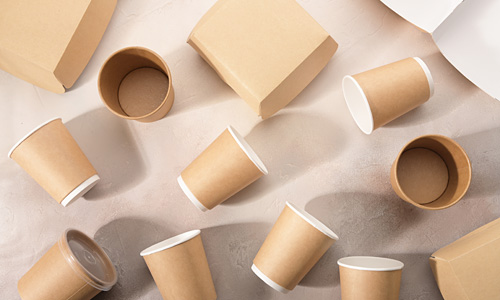Biopolymers for the Food Industry June 2021
Want more free featured content?
Subscribe to Insights in Brief

Canada-based good natured Products is a leader in developing plant-based products such as crates and containers, food packaging, and cutlery. The company uses polylactic acid as a starting material for the majority of its products but is expanding its portfolio to include products made from sugarcane and fiber. In May 2021, the company announced its launch of biodegradable food containers that are heat resistant, which makes them one of the first plant-based containers on the market that will be microwaveable. The packaging is made from 97% plant-based materials, is highly durable, and is leak resistant. The containers will be available in a variety of colors and sizes together with microwavable lids. Another advantage of these food containers is that they contain no harmful chemicals such as phthalates and bisphenol A, which are sometimes in plastic-based food packaging and can leach into food upon heating in microwave ovens.
Implications
Currently, manufacturers make most plastics from nonrenewable feedstocks that derive from petroleum. However, the recent rise in consumer awareness of the environmental issues that arise from the manufacture and disposal of traditional plastics, coupled with government bans on single‑use plastic products, has promoted the growing practice of producing plastics more sustainably. In Canada, the government will place restrictions on single‑use plastics at the end of 2021, and use of bioplastic products such as good natured Products' food packaging will likely surge. NatureWorks, another North American company that produces low‑carbon polylactic acid, recently announced its partnership with a large coffee-processing-and-packaging company. Together, the companies will introduce compostable single-serve coffee pods to provide a sustainable solution for simplifying food-waste recovery.
Since the start of the pandemic, plastics use in the food industry has increased significantly as restaurants offered more takeaway food and beverages, and bioplastics companies saw their revenues grow substantially. Riding the crest of this growing practice is good natured Products: The company saw its revenue grow by 65% from 2019 to 2020. In 2020, good natured Products acquired a large-scale production facility, which might enable the company to produce packaging more cost-effectively and deliver an affordable product.
Several companies in the food-and-beverage industry are investing in recyclable packaging for their products. In 2020, Diageo, in collaboration with Pilot Line, established a sustainable packaging company—Pulpex—that created the world's first 100% polyethylene terephthalate–free paper bottle. Pulpex recently announced that it is starting industrial-scale production of wood-pulp-based bottles for the beverage industry. Leading brands—including PepsiCo and Unilever—have committed to incorporating this technology in their packaging.